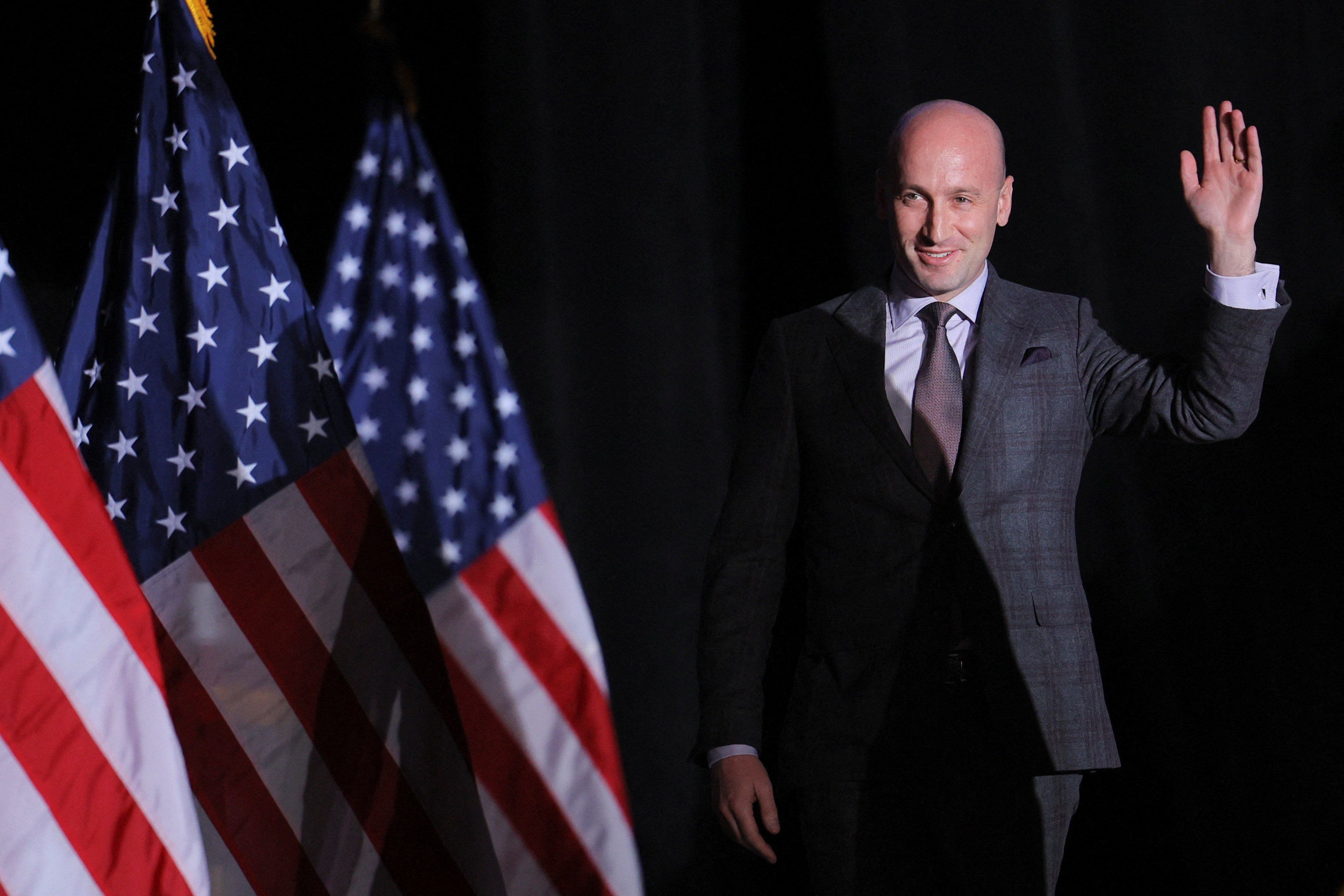If his expanding slew of cabinet picks tells us anything, President-elect Donald Trump will, as expected, take an ultra-hardline approach to immigration, security matters, and relations with the United Nations.
He is reportedly set to appointStephen Miller as his deputy chief of staff. Miller, a former Trump speechwriter and close adviser, is a stickler on immigration who helped formulate Trump’s proposals for the mass deportation of up to one million undocumented immigrants per year, as well as a review of current citizenship and naturalization policies.
In that capacity, Miller will work closely with Thomas D. Homan, whom Trump has tapped as his somewhat vaguely defined “border czar.” According to Trump, Homan will oversee border security and “be in charge of all Deportation of Illegal Aliens.” Homan, a former ICE official, oversaw record deportations under the Obama administration and helped design Trump 1.0’s controversial “family separation policy.”
Trump has also nominated New York Congresswoman Elise Stefanik as US ambassador to the United Nations. Stefanik, a staunch Israel supporter and harsh critic of the UN, has called for defunding UNRWA, the organization’s humanitarian relief agency for Palestinian refugees, over allegations that it is infiltrated by Hamas. Stefanik has accepted the post, and as ambassador, she will carry Trump’s UN-skeptic, “America First” agenda right into the heart of the organization.
Trump has reportedly tapped Florida Rep. Michael Waltz, a retired Special Forces officer and China hawk, as his national security adviser. Former New York Rep. Lee Zeldin, meanwhile, has been appointed to run the Environmental Protection Agency, where Trump says Zeldin will “ensure fair and swift deregulatory decisions that will be enacted in a way to unleash the power of American businesses.” Sen. Marco Rubio is expected to bring harsh stances on Latin America -- notably Venezuela and Cuba -- and China and Russia to the position of secretary of state, and South Dakota Gov. Kristi Noem is set to become Trump's secretary for the Department of Homeland Security, according to reports.
Trump has already appointed his White House chief of staff, Susie Wiles, and she told GOP donors yesterday that Trump plans to hit the ground running by reinstating several executive orders from his first term on Day 1 of taking office — though she did not specify which ones. Wiles also told the group that Trump plans to revolutionize the government in two years, rather than four, in recognition that he could face harsh midterm elections.
